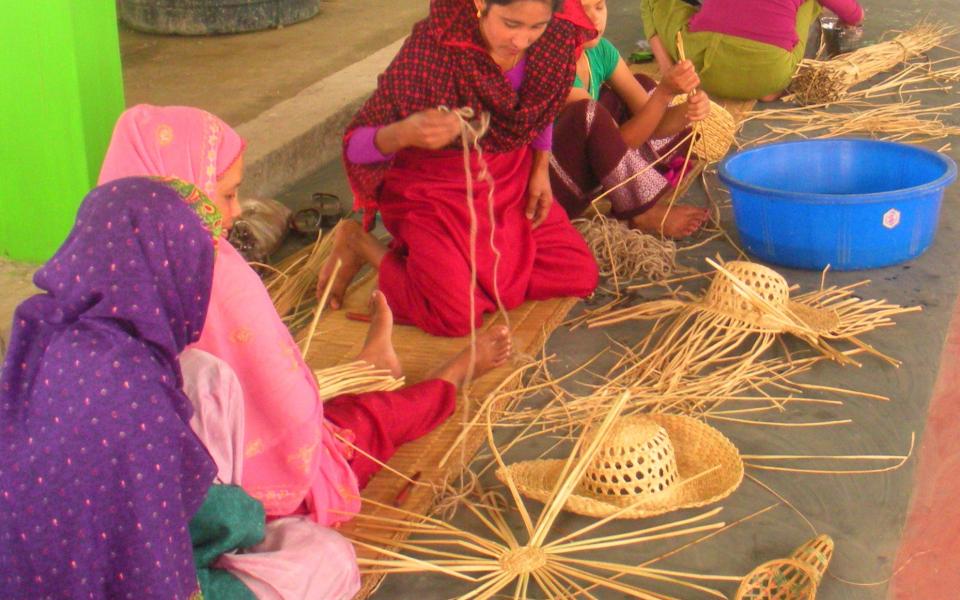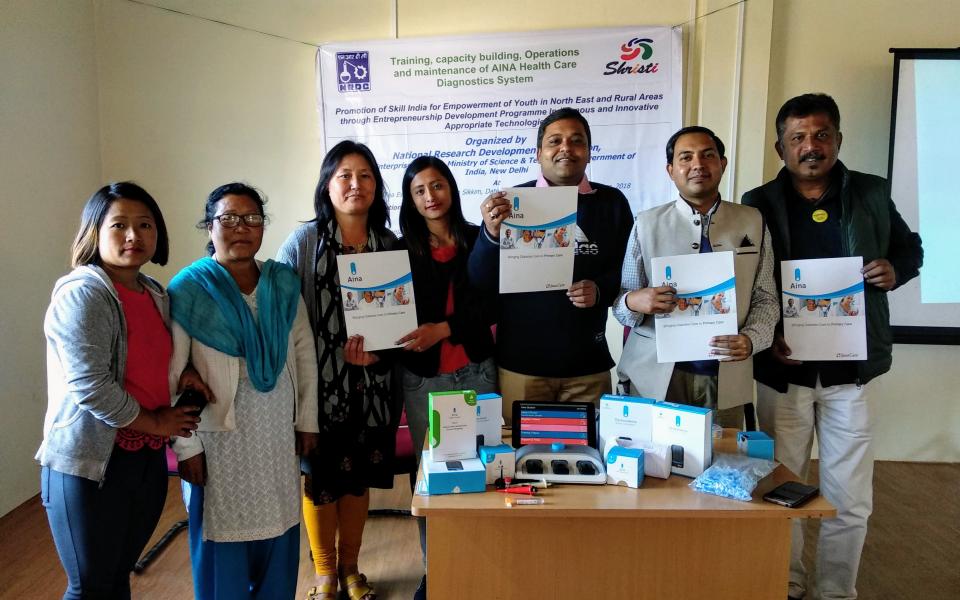Written by Atharva Mehendale, Community Project Manager, URI - North India & Afghanistan
Shristi was born out of the need felt by a group of committed professionals from the technical, management, legal, statistical, economics, marketing and logistics sectors to ‘give back’ to the society. The organisation was established in 1998 by Late Sh. Sudipto Mukherjee, a talented and visionary chemical engineer with the objective of enhancing socio-economic conditions in rural as well as urban backgrounds through appropriate interventions and capacity building. It focuses on strengthening the livelihoods of marginalized communities - communities that don’t have access to education and healthcare. The society runs on the objectives of working with the informal sector and providing them with technical know-how, appropriating interventions to the rural sector, creating self-sustaining and viable producer groups, and encouraging them to use their own inherent skills as a means of employment.
Shristi, since its inception has diversified into a number of domains. The society stays true to its objective of ‘building communities through arts and science’ through its focus on handicrafts and the artisan community in India. Under its ‘Ecoskillarts’ initiative, it imparts creative training, creative capacity building and skills to people from vocational backgrounds and to those passionate to diversify into arts. The target group for the society ranges from artisans to government officials. It follows the circular economy approach – an approach that believes in the value adding potential of each and every stakeholder in the supply chain. Shristi has successfully implemented a multi-craft Common Facility Centre (CFC) for Artisans in Barasat, West Bengal with the grant-in-aid of Development Commission (Handicraft), Ministry of Textiles, Govt. of India. Today, Shristi has grown to be recognized as a national resource organization for handicrafts.

The society regularly conducts workshops on peace, faith, environment, renewable energy and entrepreneurship development programs (EDP). Shristi has so far provided design and technology interventions to more than 2000 artisans and 500 students under EDP programmes. In today’s competitive world, it is essential to possess knowledge and skills which match global intellectual requirements. These can be acquired through a systematic approach involving creative concepts as well as practical exposure. EDP on sustainability intends to provide an edge for the participants on acquiring world class skills by imparting innovative conceptual knowledge. This program is meant to boost the career growth of professionals and provide students with thorough knowledge of sustainability concepts. Through this program, Shristi aims at creating a space where people understand the importance of financial, cultural, environmental and social sustainability.

Shristi’s association with URI – North India & Afghanistan is a rather recent one. The society aims at being able to collaborate with URI for projects, programs, interventions, trainings and capacity building. Mr. Pinaki Dasgupta from Shristi believes that a deeper connect with the society is possible only when faith and religion is actively used in conversations about compassion and fairness. Members of the artisan community belong to many different faiths. Shristi hopes that their association with URI would help the former to understand the nuances of multi-faith representation; which would make their interventions more socially inclusive. Shristi firmly believes in the need to embed social inclusion in all of its activities. It does so by reaching out to the under-represented sections of the society and developing more inclusive interventions. The handicraft sector is a rather under-represented, unrecognized and unsupported one. This often makes it difficult for Shristi to raise funds and awareness; and makes scaling up the intervention difficult. Shristi is eager to collaborate with national and international creative and research communities to percolate their solutions and technologies for the upliftment of marginalised sections of the society through appropriate scientific interventions. The society has been striving over the years to address this and to bring more inclusivity and visibility to the sector.
Find below, an article on Arts & Democracy by Mr. Pinaki that explores the crucial link between art, democracy and development.

